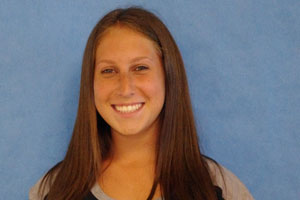29 art classes, 19 music classes, 6 family and consumer science classes, 5 media classes, and just about every math, science, and English elective that a Staples student can dream of. How many business oriented class does Staples offer? Three.
Almost two years ago Staples only had two business oriented classes. That was until math teachers Lenny Klein and Sarah White finally saw their vision of a personal finance management class come true. After teaming up with WISE, a national organization that promotes financial literacy, the curriculum was approved and at the beginning of the 2010-11 year the two sections ran for first semester. Although the course is a work in progress and takes years to refine, the first year and a half have brought much success and enrollment has increased.
Klein, a seasoned finance expert witnesses the lack of financial literacy when he is with adults as well as teenagers. Topics like budgeting, mortgages, and saving money are applicable to every person’s life and are skills that everyone should learn. Personal Finance uses tools like field trips to financial fairs and real life problems to make the class “a sophisticated game of life” that everyone can relate to. “I couldn’t be happier with the personal finance class. It’s a good and necessary product that will help the future generation because life is not guaranteed to be easy in the future like it was for past generations,” Klein said. Jonah Aelyon ’12 echoes Klein’s praise of personal finance by describing the class as, “most useful and important class I took in Staples.”
Staples’ lack of a business program is due to the fact that most students are college bound and have the opportunity to study business skills in college. According to what Klein has been told, the high schools with business programs are usually schools where college is not as common. But what about the students who do not enjoy music or art and instead have a passion for business?
Aeylon who has taken AP economics as well as personal finance and is interested in pursuing business doesn’t think that Staples needs a larger business department. “Personally, its something I know I’m going to explore in college and I don’t want things I learned to cloud my judgment in college or to give me pre-conceived notions on the subject of business,” Aeylon said.
Jake Hirschberg ’13 on the other hand feels differently. He has benefitted from his experience in personal finance and believes that, “business classes right now are starting to become more popular and students would continue to pursue these business interests if more classes were provided,” Hirschberg said. But Hirschberg has not let the lack of a business program hold back his desire to pursue business.
Hirschberg and Anthony Amaru ’13 enlisted the help of Klein to start their “Future Buisness Leaders of America” club. “We created the club because we felt that the Staples community wasn’t giving a great opportunity to teach kids how the stock markets work and how to manage money,” Amaru said. Both Hirschberg and Amaru encourage eager business oriented students to join the club so that they can take the simple stock market game playing club, to the next level consisting of selling and marketing products and possibly even buying real stocks.
Although the land of opportunity, Staples is missing a gap in its curriculum when it comes to a business program. However development in clubs, personal finance, accounting, and economics has exposed more and more students to the basics of business that will help them for possible future business situations.
Regardless of the number of business classes Staples offers, students still seem to excel. Evidence of this is the team that Klein entered into the FedCup economics and finance challenge. The team completed the first challenge and moved on to New Englands in Boston. “We had no financial department and still advanced far into the competition. Clearly the impact that the few business classes have had on the students is significant. Hopefully we can gain the experience to build up the department and spread the word to get rid of the idea that money is ‘taboo’ and therefore should be a topic to shun,” Klein said.














































